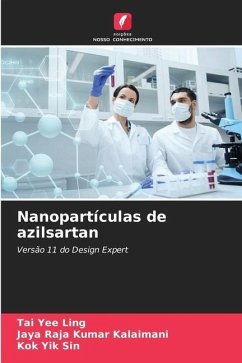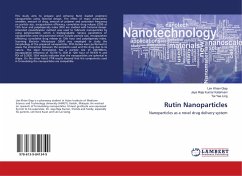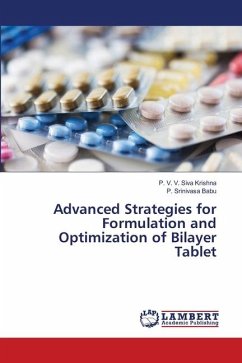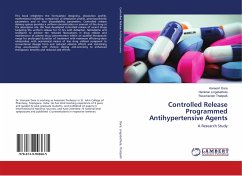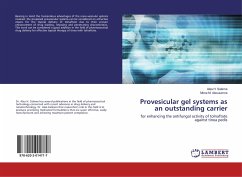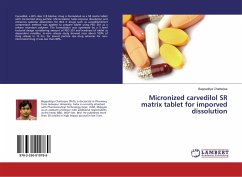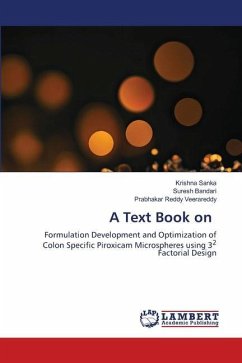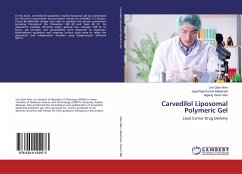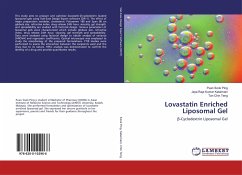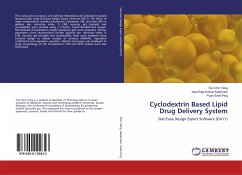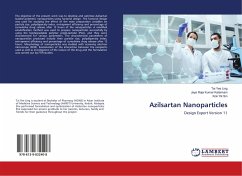
Azilsartan Nanoparticles
Design Expert Version 11
Versandkostenfrei!
Versandfertig in 6-10 Tagen
24,99 €
inkl. MwSt.

PAYBACK Punkte
12 °P sammeln!
The objective of the present work was to develop and optimize Azilsartan loaded polymeric nanoparticles using factorial design. The factorial design was used for studying the effect of the main preparation variables on particle size, polydispersity index, entrapment efficiency and percentage of cumulative drug release after 12 hours of the nanoparticles. A modified emulsification method was used to prepare nanoparticles successfully by using the biodegradable polymer poly(L-lactide) (PLA), and they were characterized for various parameters. The characterized parameters of nanoparticles produce...
The objective of the present work was to develop and optimize Azilsartan loaded polymeric nanoparticles using factorial design. The factorial design was used for studying the effect of the main preparation variables on particle size, polydispersity index, entrapment efficiency and percentage of cumulative drug release after 12 hours of the nanoparticles. A modified emulsification method was used to prepare nanoparticles successfully by using the biodegradable polymer poly(L-lactide) (PLA), and they were characterized for various parameters. The characterized parameters of nanoparticles produced include their particle size, polydispersity index, entrapment efficiency and percentage of cumulative drug release after 12 hours. Morphology of nanoparticles was studied with scanning electron microscope (SEM). Examination of the interaction between the excipients used as well as investigation of the nature of the drug and the formulation was carried out by FTIR studies.



